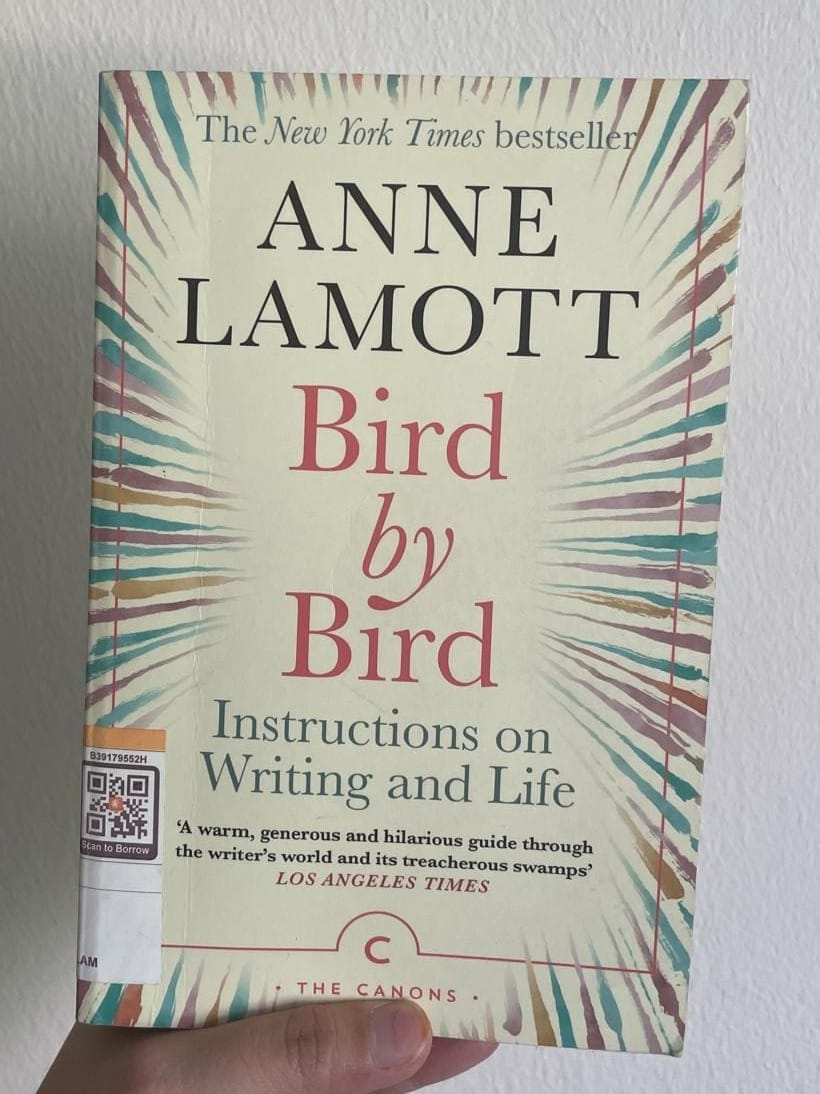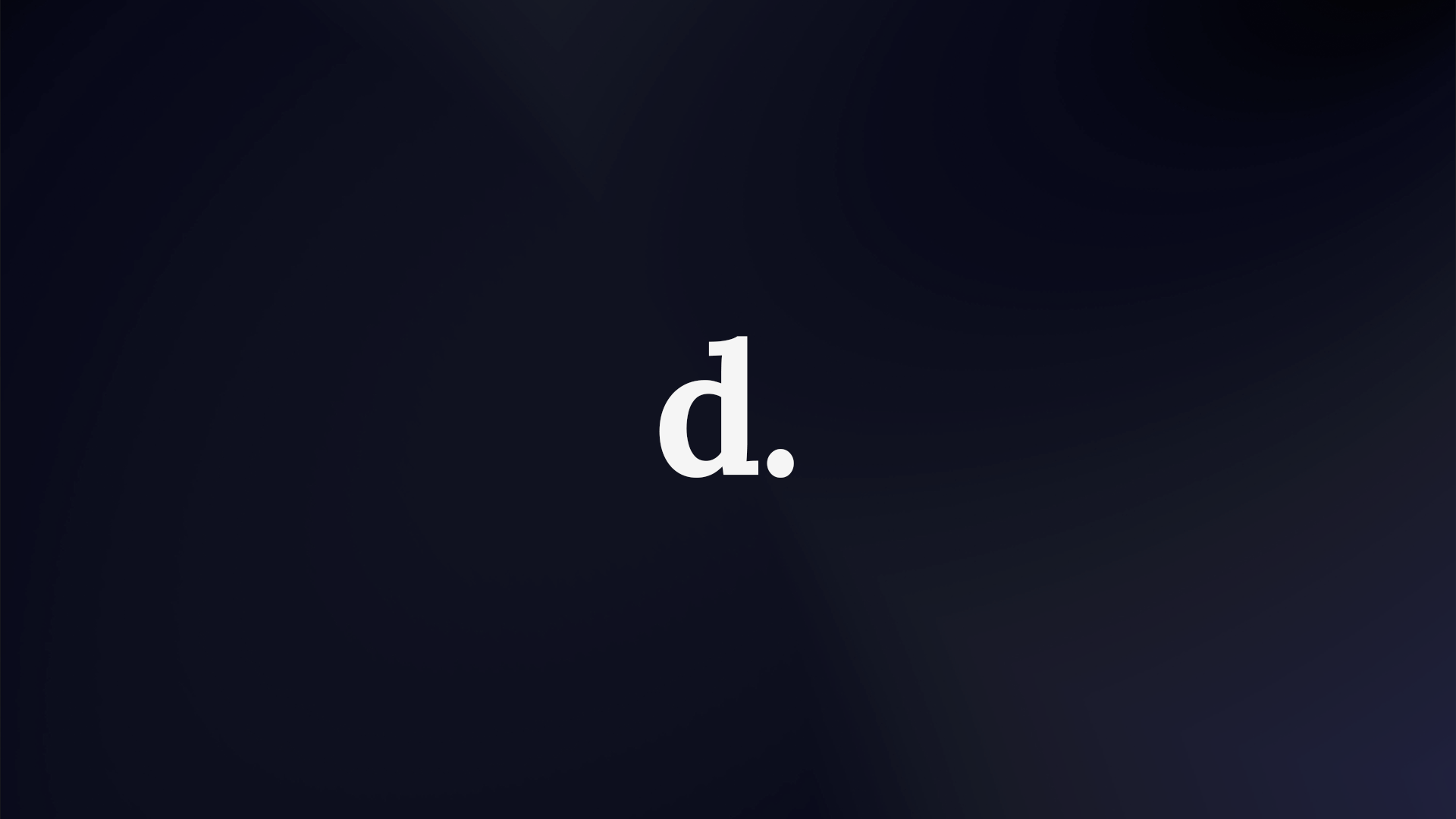Anne Lamott's Bird by Bird
Review of Anne Lamott's Bird by Bird

At some point during one of the many conversations I had with my husband, I shared that my lowest grade in O levels was for my Social Studies/English Literature combination subject. It's a sore spot for me, because I still don't know which subject pulled my grades down. I suspect it was English Literature, because at 15, I didn't enjoy reading To Kill a Mockingbird to analyse it. I wanted to read it for fun (it wasn't a particularly fun book).
Going on Sparknotes, memorising the book, and attempting to understand the characters and their motives were not it for me. So it's quite an irony when, some years later, during a therapy session, I claimed that writing was my one form of creative endeavour. My therapist was like, "That's great."
I dunno, man. I guess it has the lowest barrier of entry - everyone writes, right?
Anyway, I recently read Anne Lamott's Bird by Bird, which I found through this edition of Ghost's newsletter. It was also the book I brought to read the first time I attended Maktaba Books' Silent Reading Session. (There's another one coming up on 7 September!) So, I feel like I need to be responsible and talk about the book a little bit (even if no one asked for it).
When I was about 40% into the book, I described it as organised rants about writing. Because it is organised and the format is less instructive, more personal stories. Which I really enjoyed at the end. Made me feel all warm and fluffy inside.
Do I recommend the book? If you're starting to write and are unsure where to begin (like me), yes. Don't expect a straight forward how-to guide to being a published writer. It's about getting started, getting over yourself, finding your footing, learning to trust your truest, inner self. If you think it'll lead you to being published, you'll be sorely disappointed.
Anyway, here are some advices that I thought were pretty noteworthy:
Don't think about publishing
Most people who start writing think about getting published. Of course, that's always the next stage, right? But as Anne succinctly put it, "They kind of want to write, but they really want to be published."
Publication is always fantasised as this magical thing that will solve all your problems and get you a new mansion (in this economy?) and car, but it's not all rainbows and butterflies.
You need to write, first. Do the work.
Develop characters, plot will come
Most times we have this clear idea in our head about how a story should develop. Character A meets Character B, something happens, fight fight fight, resolve the fights, happy ending, yay! Anne suggested learning our characters first, then listen to them. Let them lead the way through the plot.
Polaroids
Stories develop like polaroid pictures. You may start at a point and then start developing the story as more details appear, like a developing polaroid picture.
This advice kinda reminded me of oral examination during school for English and Malay. I'm sure it's the same for other mother tongues. You know, that section where you have to describe a picture and try to infer what's going on.
"On the top right hand of the picture a child with an ice cream cone is crying. Perhaps he lost his ice cream to the ground," or something.
Letters
I felt a little validated when she said to write your stories like you're writing a letter to someone. Sometime ago, I rebranded this blog to Fatihah's Letters, which is more aligned to how I view these pieces - like letters.
According to Anne, letters are informal. It helps to release you from the tyranny of perfectionism, to write part of your character's history in the form of a letter.
Find ways to jot things down
I have this problem almost all the time. I thought of a great line, saw an interaction that I thought would be a great opening for a piece I'm writing, I heard a fun dialogue. And then when I sit down at the table to write it down, I forget it. The flow, the details, the faces - gone. It's extremely frustrating.
The suggestion is to bring index cards to jot things down. I usually use my A5 notebook these days.
Writing is an act of giving
You may not receive anything in return. But you still write, because writing is an act of giving.
Resources:

